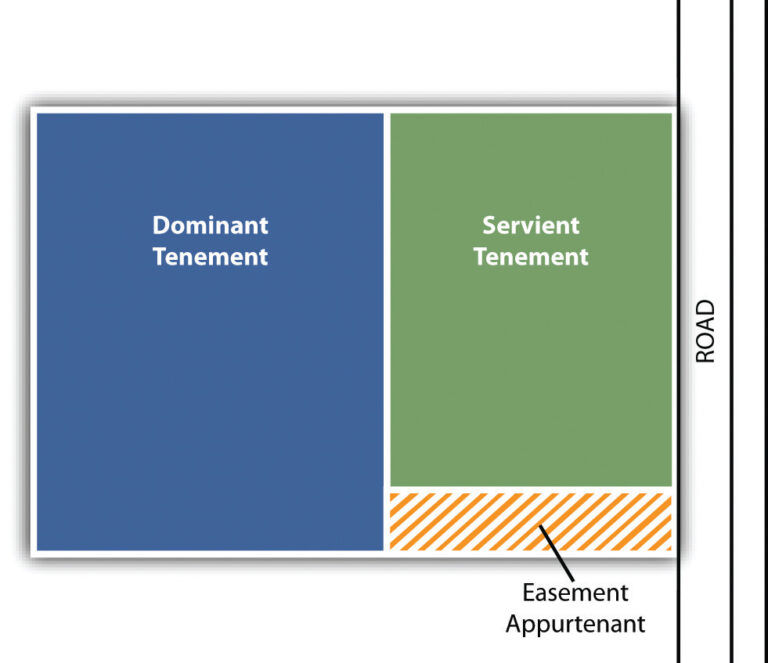Real Estate
Property Easements - Enjoying Your Property To Its Fullest
When it comes to real estate, what you don’t know CAN hurt you, especially when it comes to property easements. Property easements could turn a prime real estate investment into a privacy-lovers nightmare. As first-time homebuyers or experienced real estate investors, it is important to understand all the options that are available to you prior to closing. Here in this article, we talk about the ins and outs of property easements.

What Are Easements?
Legally speaking, an easement is a right enjoyed by a dominant tenement over a servient tenement, for a purpose other than general use or occupation. In layman’s term, an easement is the right for one property owner to enter another’s without permission. Remember, an easement grants use of a part of property, but does not transfer interest. As such, the original property owner is still responsible for the taxes on the part of the property.
- Which property is the Dominant Tenement (Property receiving benefit)
- Which property is the Servient Tenement (Property giving the benefit)
- Full description of the easement (found within the Reference plan or metes & bounds)

Types of Easements
1. Express Grant
2. Easement by Prescription
3. Easement by Implication
4. Easement by Statute
Termination of Easement
1. Merge
2. Release
3. Cessation of Purpose
Purchasing a Property and Undisclosed Property Easements
Within the Agreement of Purchase and Sale, there are clauses that protects purchasers from undisclosed easements. If the solicitor discovers an easement on or before the requisition date, the purchaser can object. The clause excludes minor easements for public services and utilities.
Will an Easement Affect Property Value?
Usually, If the property is the dominant tenement of the easement, then it may potentially increase value to the property. Similarly, If the property is the servient tenement of the easement, then it may potentially decrease value to the property. However, there’s no “ general rule” about how an easement can affect property value.
What Should I do Next?
While your real estate agent can help you understand the basics of property easements, getting an opinion from a real estate lawyer is also essential. As such, we advise you to speak with a real estate lawyer or get in touch with us so we can refer you to an expert.
Need More Help on Property Easements?
Here's How You Can Get In Touch With Us
We Are Available 24/7
Feel free to ask us anything.
We are fluent in 廣東話 Cantonese and English
Social Media
Interested In Learning More?
Real Estate Chattels and Fixtures – What’s Included and What’s Not Sometimes, life throws you a curve ball. Imagine yourself finally getting …
Real Estate Home Improvements – Inexpensive Projects You Can Try For Big Returns It’s always a good idea to spruce up the …
Real Estate Pre-Construction 201 – The Ins and Outs of Assignments With over 500 new Pre-Construction projects currently available on the GTA …

Our Promise To You
Fung Finances is a free service. We are not an accountant, financial advisor, law firm, “lawyer referral service,” or a substitute for an accountant, financial advisor, attorney, or law firm. Always do your own due diligence and never blindly listen to a random article on the internet. We do our best to provide financial education with our free videos, articles, tools, and other self-help content. But these are for informational purposes only, they’re not investment advice.
Fung Finances does not and cannot guarantee the accuracy or applicability of any information regarding your individual circumstances. The examples we provide are hypothetical and we encourage you to get advice from a qualified professional regarding specific investment, tax, legal, and financial issues. Previous market performance does not guarantee future performance.
We want everyone to be able to make educated financial decisions. We do not feature every company or financial product available. However, we’re proud of the financial education and guidance that we provide at no charge.
We’re paid by our brand partners and advertisers. This may influence which products we mention, review, and where they appear on our site. But it does not affect our recommendations or advice.



